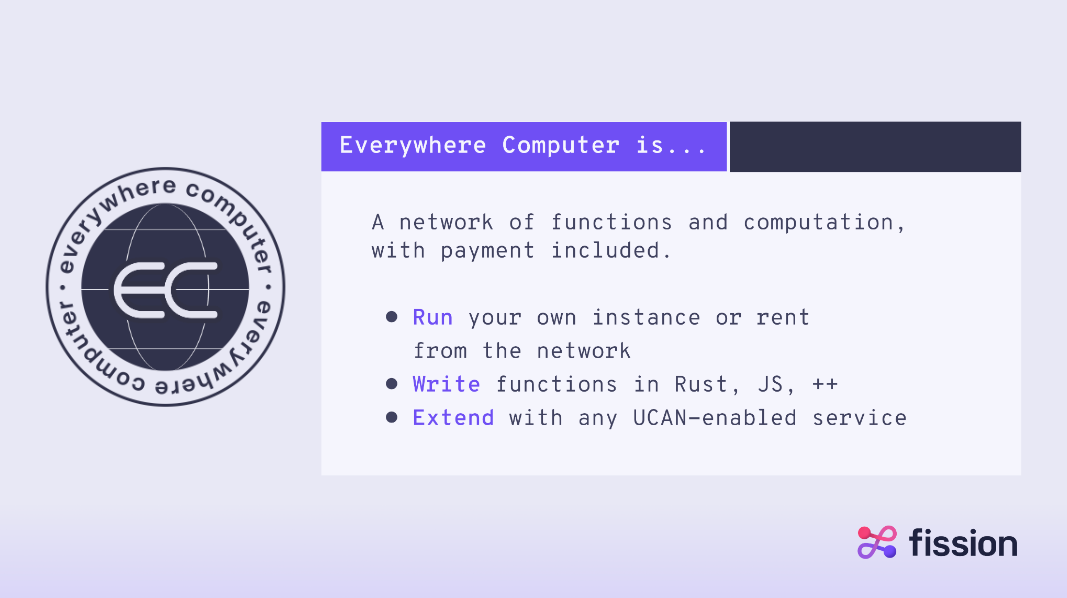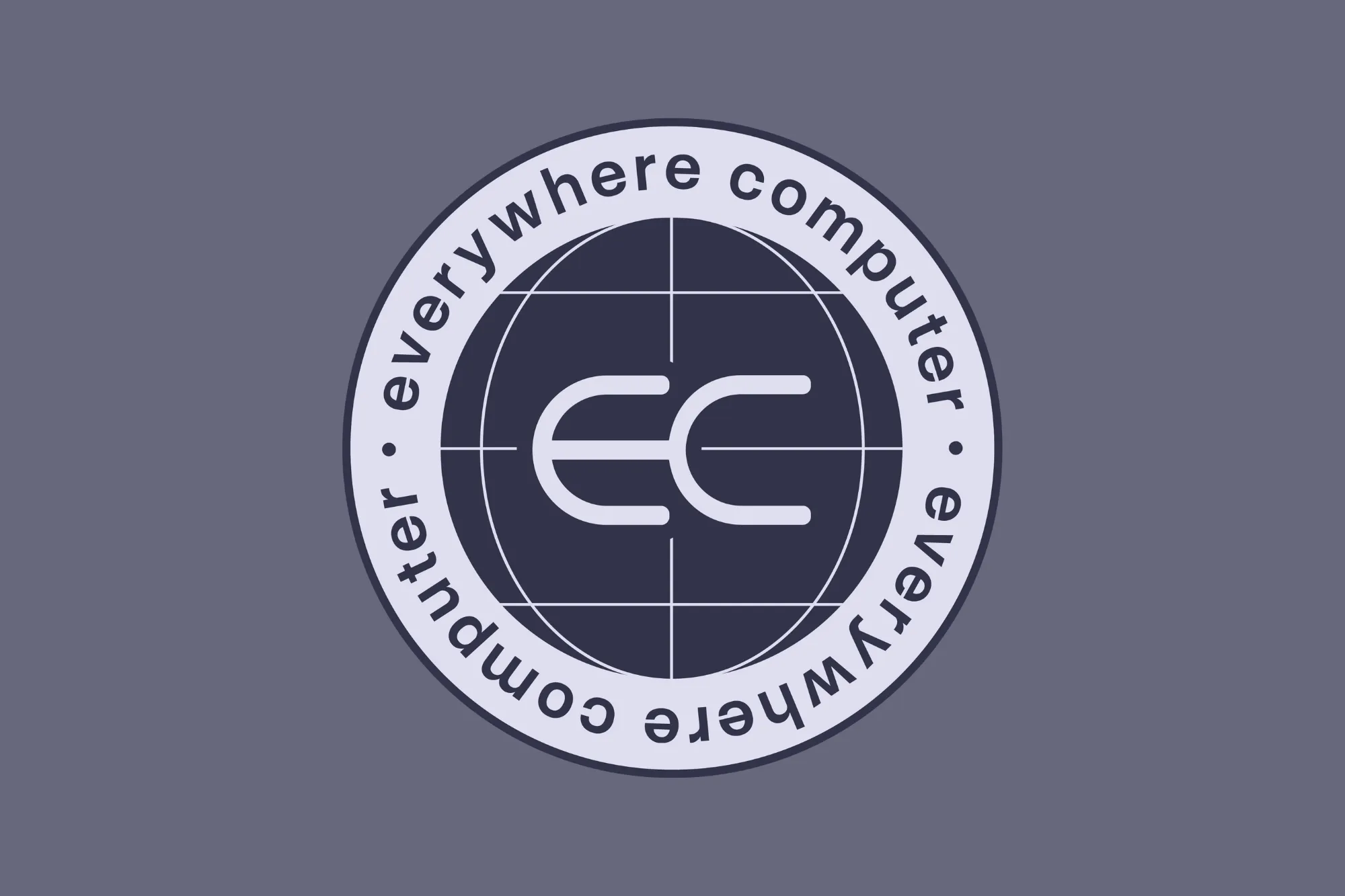If you were present for CEO Boris Mann's presentation at the PL Summit, you heard the alpha on Everywhere Computer. Yes, that's right. After several years of being deep in the protocol mines, Fission is thrilled to launch our first product!

We've shared several exciting announcements over the past few months, so let's break them down in full context now.
IPVM is the open source protocol that powers Everywhere Computer.
Homestar is the individual node that makes up the network (similar to how IPFS Kubo, Iroh, Nabu, or other implementation nodes make up the IPFS network). It's written in Rust, and is designed for performance and composability.
Everywhere Computer is Fission's platform: a branded and supported distribution that bundles Homestar + control panel, a function & workflow marketplace, and managed compute resources.

Writing Wasm Functions
Today we've got a few sample functions to test the network, with Rust → Wasm being the happy path. We'll have some tooling and examples for JavaScript → Wasm soon.
Like NPM providing a library of functions that developers use to quickly write applications, Everywhere Computer's directory will lead to re-use of serverless functions. UCAN can be used to gate access to functions, or specific communities or companies can federate their own set of functions for internal usage only, or to share with everyone.
Goodbye Cloud, Hello Crowd
As an application developer you can take advantage of Everywhere Computer's Wasm functions to replace backend functions in a serverless style. You're not locked into any one cloud provider's serverless stack, and can pick functions from the directory rather than needing to write them from scratch.
Additionally, not every job needs to go to the cloud. Many jobs can be done locally on an application's clients desktops and browsers. Every compute cycle that gets done locally is one that you don't need to pay for in the cloud.
When it's time to scale up, you can utilize Everywhere Computer's distributed network to orchestrate jobs along the parameters you've set, allowing it to utilize whichever platforms are most efficient. Everywhere Computer never locks you into any subscription. You pay when you compute, so you never worry about getting locked into one provider.
This means your job could run on your desktop, Homestar nodes in your community network, or managed compute services from Fission and other compute providers.
What's Coming Next - Future Plans
Speaking of writing functions and workflows, one of the things we'll be exploring is to fix some of the issues with directories where developers don't get directly compensated even though potentially 10s of millions of applications use their libraries. We will look to support development of high quality, performant, and maintained functions by having compute providers pay the developers who write them.
Don't have a Wasm-compatible function but still want to connect to Everywhere Computer, taking advantage of its distributed and interoperable network? If your service is UCAN-enabled, you will soon be able to plug it in, introducing new functionality to the entire network. As has always been the plan, UCAN's capabilities model provides a flexible IAM-like backbone that can connect the open web, rather than locked to one cloud provider.
We are so excited to share Everywhere Computer with you. If you'd like to join the early access beta, please complete this form. We're looking for enthusiast hackers & node hosts, function writers, and compute providers.
If you'd like to learn more about the underlying IPVM protocol, you can join the IPVM Working Group.
